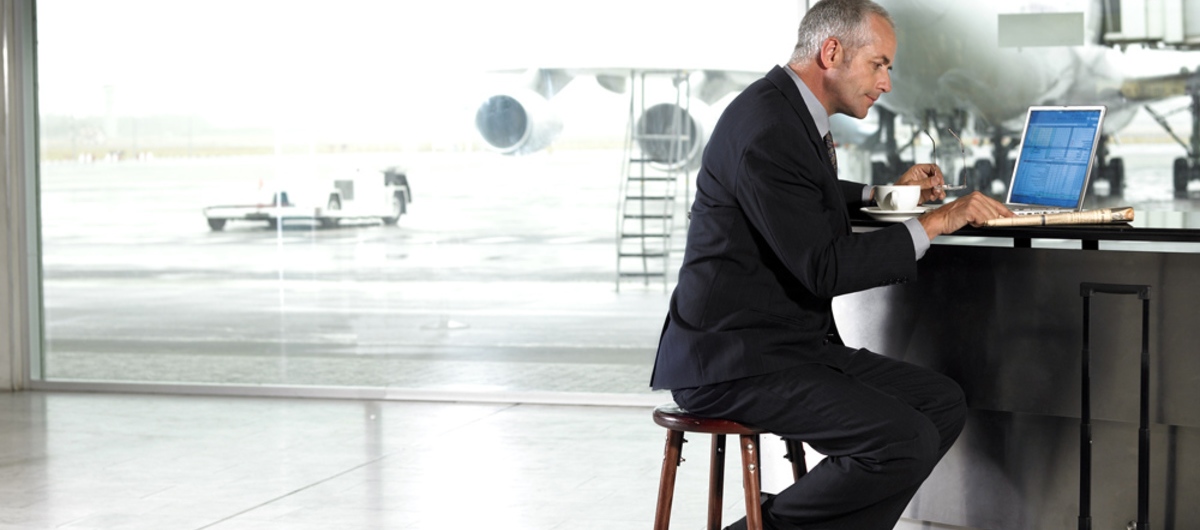More and more people will work mobile and flexible, driven by the demands of a fast-paced working environment, employees’ preferences and technical development. Companies will also benefit from this trend. Flexible work models improve business efficiency, something shown in a recent web survey about teleworking carried out by CompTIA (Computing Technology Industry Association) across 212 companies of different sizes in the U.S., Canada and Great Britain. The companies surveyed said that offering their employees the opportunity to telecommute increased productivity (67%), reduced costs (59%), improved employee skills (39%), bolstered staff retention (37%) and reduced health problems (25%).
Higher costs, if workers alone are flexible
The result of this increased employee flexibility, however, is often empty and unused desks in the office and unnecessary workspace costs. Businesses can easily reach triple to four times the amount of pure rental costs – they must pay not just the rent, but for office furniture, heating and air conditioning, power supply, computers and telephones, and workspace human services (management, maintenance, and IT services). Every hour of unused office space is a waste of valuable financial, human and natural resources.
How do companies organize their workspace to be flexible, and at the same time reduce the cost of their real estate? The commercial real estate vendor Regus has summarized their suggested solution in several recommendations. Not surprisingly, they offer the business center - also known as an executive suite or serviced office - as the appropriate solution.
The solution: Business Centres
Instead of the traditional model, in which all employees have their own fixed workplace, they suggest a more efficient approach with shifting desk configurations. Employees can then choose their workspace, depending on demand.
- Companies should first determine which activities can be performed by telework, then develop specific plans for their office.
- For part-time teleworkers, firms should offer hoteling or hotdesking solutions. This makes it possible for firms to have less desks and workspaces than the number of employees. Desks are provided as needed, rather than being permanently assigned. This allows companies to rent less floorspace and decrease their maintenance costs.
- Full-time teleworkers often require additional resources that the company must provide, if their home office does not have the facilities they require. These may include business lounges, video conference services and meeting rooms where they can receive visitors.
- As well as reorganizing resources at their headquarters, companies can save a lot by rethinking their approach to branch locations of satellite offices. Opening a new location – whether at the other end of town or at a spot near important customers or staff – often requires high set-up costs and the risks associated with long-term leases. Companies that are expanding need flexible contracts to allow them to expand or move. By retaining flexibility, they undertake no unnecessary risk.
- For a sales office which requires an official business address but no actual office, the solution is a so-called virtual office.
- Small companies or outsourced operations which are in the starting phase and require secretarial support should consider a serviced office. These offer professional service personnel for secretarial, translation and technical support on the side, which can be used as needed. This does away with fixed personnel costs.
- Businesses that need a temporary office for a project team can make significant savings if it uses a furnished and fully-equipped temporary office.
Small Changes – Big Impact
Regus manager Michael Barth concludes the company’s recommendations by saying: “Even small changes to a production line or packaging lie can mean big cost stavings. The same is true for office space. Companies that rely on the tried and tested recipe – rent a room, move in, allocate each of the employees to a desk, a computer and a telephone – are systematically throwing money out the window.” This money, of course, Barth would prefer them to invest in Regus’s office services.
:::::
Deskmag








